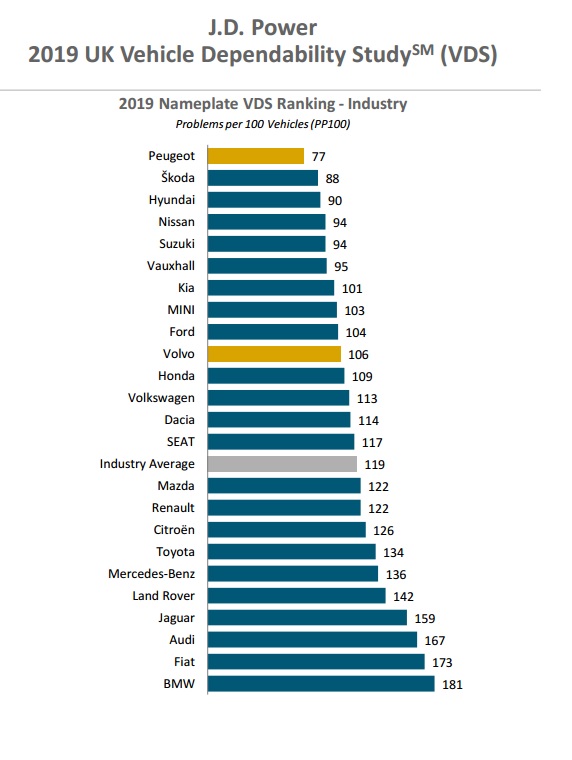In your example there probably isn't much difference between those models because they all share the same platform and engines etc.
But as you start going up the range for Skoda and Seat, they are still the same MQB platform (albeit stretched), with transverse engines, nothing more than 4 cylinders, only haldex if 4wd etc. Inherently no more complex than some of the lesser models.
Whereas up the range in VW and Audi means different platforms not just MQB, transverse and longitudinal engines, 4, 6 and 8 cylinder engines, haldex and torsen 4wd systems, and then generally more advanced and newer tech that is less time proven. As a brand they both offer more complex models than their non-german cousins.
As someone else pointed out though, be interesting to see how use cases and mileage skews those figures.





